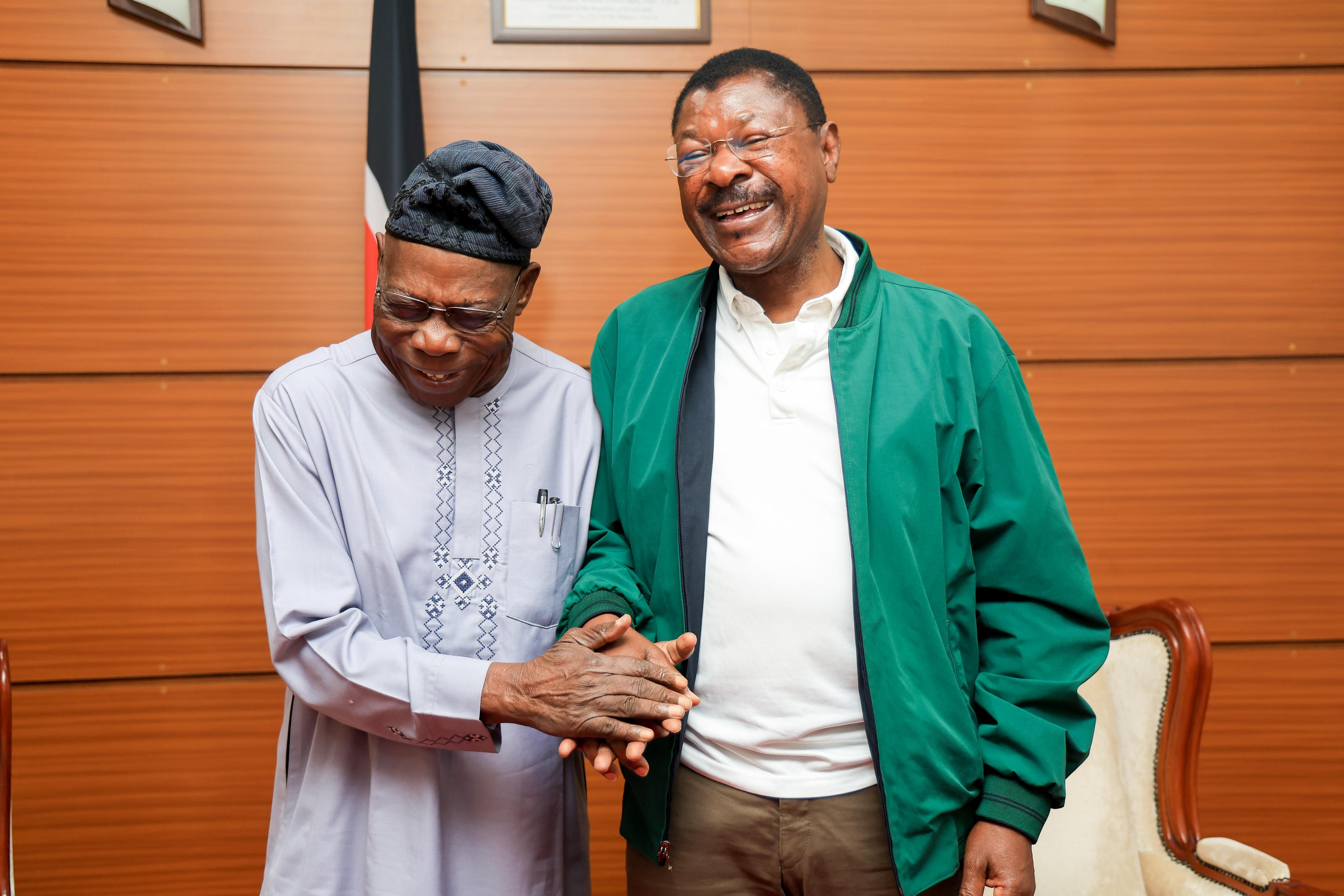
National Assembly Speaker Moses Wetang’ula on Thursday held a consultative meeting with former Nigerian President Olusegun Obasanjo to discuss peace initiatives in the East African region.
The discussions between the two, according to a statement, focused on the ongoing mediation process between the Democratic Republic of Congo (DRC) and Rwanda, a critical diplomatic effort aimed at de-escalating tensions in the conflict-prone Great Lakes region.
Obasanjo is among five eminent African statesmen spearheading the Nairobi-Luanda peace process on eastern DRC.
Others are former presidents Uhuru Kenyatta (Kenya), Kgalema Motlanthe (South Africa), Sahle-Work Zewde (Ethiopia), and Catherine Samba-Panza (Central African Republic).
Their collective mission, sanctioned by the East African Community (EAC) and the Southern African Development Community (SADC), is aimed restoring stability in the region.
President William Ruto on Tuesday chaired an inaugural meeting of the facilitators where he briefed them on their mandate and the expectations as they embark on the mission.
Their mandate was outlined during the last session, setting the stage for their involvement in advancing the peace initiative. Reflecting on his long-standing commitment to peace, Obasanjo recalled his decades of mediation efforts, dating back to the 1960s.
“It was the same problem we are dealing with now. We must find a solution,” he remarked, underscoring the urgency of resolving the persistent conflict.
Wetang’ula echoed similar sentiments, drawing from his past involvement in the DRC peace process.
He recounted working with the late Tanzanian President Benjamin Mkapa in 2009 on efforts to foster dialogue and reconciliation in the region.
“The same problem persists 14 years later,” Wetang’ula observed, emphasising the need for sustainable African-led solutions.
Commending the ongoing diplomatic efforts, Wetang’ula stressed that only through high-level mediation and collective political will, the region will achieve a lasting peace and development.
The high-level engagement comes amid growing calls for regional cooperation, humanitarian intervention, and continental solidarity to address the fragile security situation in the Great Lakes region.










